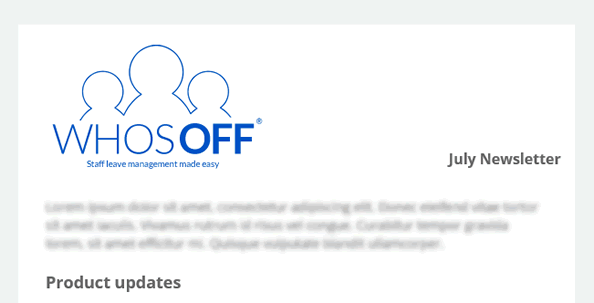Finding the right person for the job is an ongoing challenge for business owners, so when the right person comes along, the idea of them taking leave can sit uncomfortably. However, we all know employees can’t be on call 24/7,365 days a year.
Rather than hoping for the best, an increasing number of businesses are putting greater resources into managing absences better – particularly if their workforce is small or under-staffed. Paying closer attention to basic techniques and tools can make a big difference to the impact that staff holiday has on company productivity, and prevent a minor inconvenience snowballing into a full-blown crisis.
Every sector tells a different story
Although overall employment is at a healthy level in many countries, that doesn’t mean the supply of skills is balanced equally across all industries.
In the UK, for example, there are worrying labour shortages in the construction, healthcare and hospitality sectors, as detailed in a recent Financial Times report. Skilled workers such as builders, chefs, developers and doctors are in high demand, putting pressures on many organisations to maintain standards of service with skeleton staffing.
This supply squeeze is not just a recruitment concern; if companies can only attract one or two team members to perform a crucial role, simple things like holidays can turn into a productivity nightmare. Calendar clashes can be disastrous to company performance, and therefore each request for annual leave must be considered carefully to prevent it impacting the wider business.
Give valued employees the break they deserve
When talent is thin on the ground, it’s more important than ever for staff to take their full holiday entitlement. Stress and burnout due to overworking can result in long periods of unplanned absence – often at times of critical workload. Taking time off gives valued team members an opportunity to rest and recharge.
In order to ensure staff holiday doesn’t compromise business output, however, firms need to think about how leave requests can be managed most effectively. For example:
- Ensure staff provide plenty of notice – formalising annual leave policies put set guidelines in place. For example, businesses may require employees to request holiday at least six weeks in advance, in order to avoid last minute surprises
- Be careful of calendar clashes – with minimal staff available, two important people being off at the same time can have catastrophic consequences. Bringing online leave management software is a good way to circumnavigate this challenge, as it will enable staff to check who has already requested leave through a digital holiday dashboard
- Regularly review who has leave coming up – another benefit of centralising leave management software is that team leaders and senior personnel can keep an eye on who has annual leave each month, to support their rota and workload planning tasks
- Plan ahead to manage expectations – better visibility over upcoming leave will allow team members to provide a thorough handover, and enable companies to warn clients and customers if their key point of contact is going to be away for a few days
Failing to prepare is preparing to fail
No person is irreplaceable, but the impact of some employees’ absences will inevitably be felt more than others. This is especially true in high demand sectors, where temporary workers can be even harder to source than permanent talent, so holiday cover is often not possible.
The number one reason that companies struggle when a key team member is on annual leave is that they haven’t prepared well enough for their holiday. With the right leave management software in place, it’s easy for HR teams and managers to stay abreast of who’s off in the near future, and make sure there are clear instructions in place to ensure no work slips through the net.
Thorough preparation also helps important contacts – customers, clients and suppliers – to feel confident that there will be a continuous standard of service on offer, even when their main connection is away from the office. Nobody minds a hard-working associate taking time off; it’s not being told about their absence, or not being given an alternative point of contact, that they object to.
All companies would like to work towards a situation where skilled employees are in plentiful supply, but that’s not a reality right now for many industries. Those businesses need to look after the valued staff they currently have, and make sure their processes for managing any type of absence – planned or otherwise – are transparent and responsive.
Online leave management software is the most effective way to improve holiday planning, by preventing costly calendar clashes and critical under-staffing issues. By making sure everybody is working from the same, central system, companies can feel confident that the rest of the team is well-prepared when a colleague begins their well-earned annual leave.
Improve the way your business co-ordinates holiday with WhosOff’s leave management software. 150,000+ people already use our platform – start a free trial to join them.
Photo by rawpixel.com from Pexels

